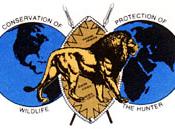Hunting in the Twenty-first Century Thomas W. Lang English 121 Dr. Weinstein 4 October2001 Hunting in the Twenty-first Century You want to be a hunter? Perhaps you have already done some hunting, or maybe you are still looking forward to your first trip out with a gun. Either way, you believe hunting is a fun and rewarding experience.
That is fully understandable. As a young boy, hunting was a way for me to enjoy the company of family while learning to appreciate the great outdoors. In a lifetime of fishing and hunting, my father had learned a lot about nature and the wildlife who live in it. At first I just thought our hunting trips were for fun, but he used these trips to educate me about the outdoors. He taught me firearm safety, respect for game laws and other people's property, and survival skills. But the lessons that I looked forward to the most were how to find and harvest the game.
In today's society hunting has become a very heated topic. Many anti-hunting legislative bills have arisen with various justifications to try and stop or limit this American pastime. There are many, many organizations on both sides of this great debate of hunting in the twenty-first century such as PeTA, Fund for Animals, NRA and the NWTF.
Metropolitan areas across the country are realizing the need for some form of animal population control. Over the last decade, the human population has shifted from urban centers into the country. Various communities and small towns are opting for controlled hunts as a solution to deer problems. In 1992 two bowhunts were held in Hennepin Parks, Minnesota, a suburban community of Minneapolis. The Chippena Nature Center in Michigan conducted a similar hunt after seven years of deer damage problems (Humphrey 84).
Wildlife populations go up and down because of things like their habitat, how much food and water they can find, how many natural predators are in the area, and the severity of the weather. Sometimes, when human development has destroyed their habitat and eliminated too much of the food supply, it is necessary for people to step in and help out with feedings and establishing refuges.
People often argue that hunting is necessary to control over-population and prevent wild animals from becoming a nuisance, or even a hazard to humans. This argument is mainly used for the white-tailed deer, which eats the shrubs on people's lawns and collide with cars if hunters do not kill them.
One of the many methods that has been studied to try and control deer herds is, birth control. A three-year study on immunocontraception has turned up flat on population control near Mumford, Connecticut. The study, which was sponsored and conducted by the Humane Society of the United States (HSUS), and included the Connecticut Wildlife Division, found using birth control as a method of wildlife management far too "time consuming, expensive and difficult"ÃÂ to be effective. At best, only 70 percent of does in the target group were successfully inoculated. As a result, elected officials in this Connecticut town have once again expanded the legal hunting that, through permit fees, generates extra income for wildlife research and conversation efforts ("Birth ").
A very little known benefit to hunting and wildlife management is, controlling or reducing the risk of diseases. The Centers for Disease Control, alerts that Lyme Disease, a bacterial infection, spread to unsuspecting people primarily by the deer tick, has increased 25 fold since 1982 and now accounts for 95% off all vector-borne illness. Children and adults are at risk in their own backyards, parks and on golf courses because overabundant deer populations increasingly bring this parasite into suburban areas. Safari Club International is urging hunters to assist wildlife management agencies calling for increased harvesting of deer where they create health risks for people and damage to property through over grazing (Safari). Geese droppings have also caused a problem in Seattle, Washington. The problem is that the normally migratory geese have settled down in town, estimated population of 25,000. These geese produce 3 pounds of wet droppings a day, especially around parks and lakes. Local health officials have no proven cases of digestive diseases from the goose poop, but blame it for many cases of swimmer's itch. Seattle beaches are occasionally closed because of the messy droppings ("Goose"ÃÂ).
Anti-hunting opposition is growing momentum on the backs of groups like PeTA, The Human Society, and Friends For Animals. The right to hunt needs to be protected. Alabama, California, Minnesota, North Dakota, Rhode Island, Vermont and Virginia all have constitutional amendments that guarantee their residents this right. Texas, Wisconsin and Indiana currently have pending legislation on this same matter. Wisconsin state Sen. James Baumgart-D, is pushing the amendment in his state which would add this sentence: "The people have the right to fish, hunt, trap and take game, which shall be managed by law for the public good."ÃÂ (Hall 19).
Securing the right to hunt contributes to other beneficial programs also. A program called "Target 2000,"ÃÂ a cooperative effort between the National Wild Turkey Federation (NWTF), state and federal wildlife agencies along with corporate and private partners. Through restoration projects to restore and expand wildlife turkey populations on 65 million acres of suitable but presently unoccupied habitat in North America. During these trapping and relocation projects the wild turkey has been brought back form only 1.3 million in 1973 to about 4.8 million today (National).
Various charitable organizations in several states have also benefited from controlled hunts. In Seattle, Washington 8,000 geese were delivered to the local food bank. A Cull Hunt in New Jersey, enabled one township to donate 6 ÃÂý tons of venison to the Food Bank of Central New Jersey for distribution to the homeless shelters and needy families ("Cull ").
Every story has two sides and preservation isn't necessarily conservation. Research done at Wyoming's Grand Teton National Park (where no hunting is allowed) shows that bird diversity and numbers are much higher on public (huntable) lands around the park than inside the park. The researchers suggest that "protected"ÃÂ moose in the park have negatively impacted wetland habitat. Service researchers in Pennsylvania and Virginia have shown that over-browsing by deer seriously impacts songbirds (Samuel 40-41).
Anti-hunting groups oppose the statements of population control by hunting groups. PeTA believes the infact hunting creates ideal conditions for accelerated reproduction. The abrupt drop in population leads to less competition among survivors, resulting in high birth rates. They think killing an animal because he or she might starve or get ill is arbitrary and destructive; The healthiest animals will survive and maintain the strength of the herd ("Natural"ÃÂ).
The closing decades of the twentieth century saw the rise of a new kind of "hunting"ÃÂ in North America the "canned hunt."ÃÂ These go under various names-such as-"hunting preserves,"ÃÂ"ÃÂgame ranches,"ÃÂor "shooting preserves."ÃÂ These hunts are considered by these groups as commercial hunts that take place on private land under circumstances that virtually guarantee the hunter success. The Fund for Animals has launched a national campaign to end this cruel, unsporting, and egregious type of hunting ("Canned"ÃÂ).
The controversy will rage on well into the 21st century, providing the American people the right to choose whether to hunt or not to is a constitutional right. One of the greatest presidents and leaders of wildlife management leaves this quote to us. "Game Butchery is as objectionable as any other form of wanton cruelty or barbarity; but to protest against all hunting is a sign of softness of head, not of soundness of heart."ÃÂ "ÃÂTheodore Roosevelt (Towsley 58).
Works Cited Bear, Cynthia. "ÃÂLetters."ÃÂ Gainesville Sun Feb. 1981, C1+.
"Canned Hunts."àOnline Posting. 6 July2000. The Fund for Animals. 13 Sept2001; HYPERLINK "http://www.fund.org/canned hunt" http://www.fund.org/canned hunt "Cull Hunt Yields 6 ÃÂý Tons Of Meat For Charity."àGuns&Gear May/June 2001: 14 "Goose Kill Authorized In Seattle."àGuns&Gear May/June 2001: 14 Hall, James. "Securing The Right."àGuns&Gear Apr. 2001: 19 Humphrey, Bob. "ÃÂKnow Hunting."àBowhunter Oct/Nov 2001: 84-87





